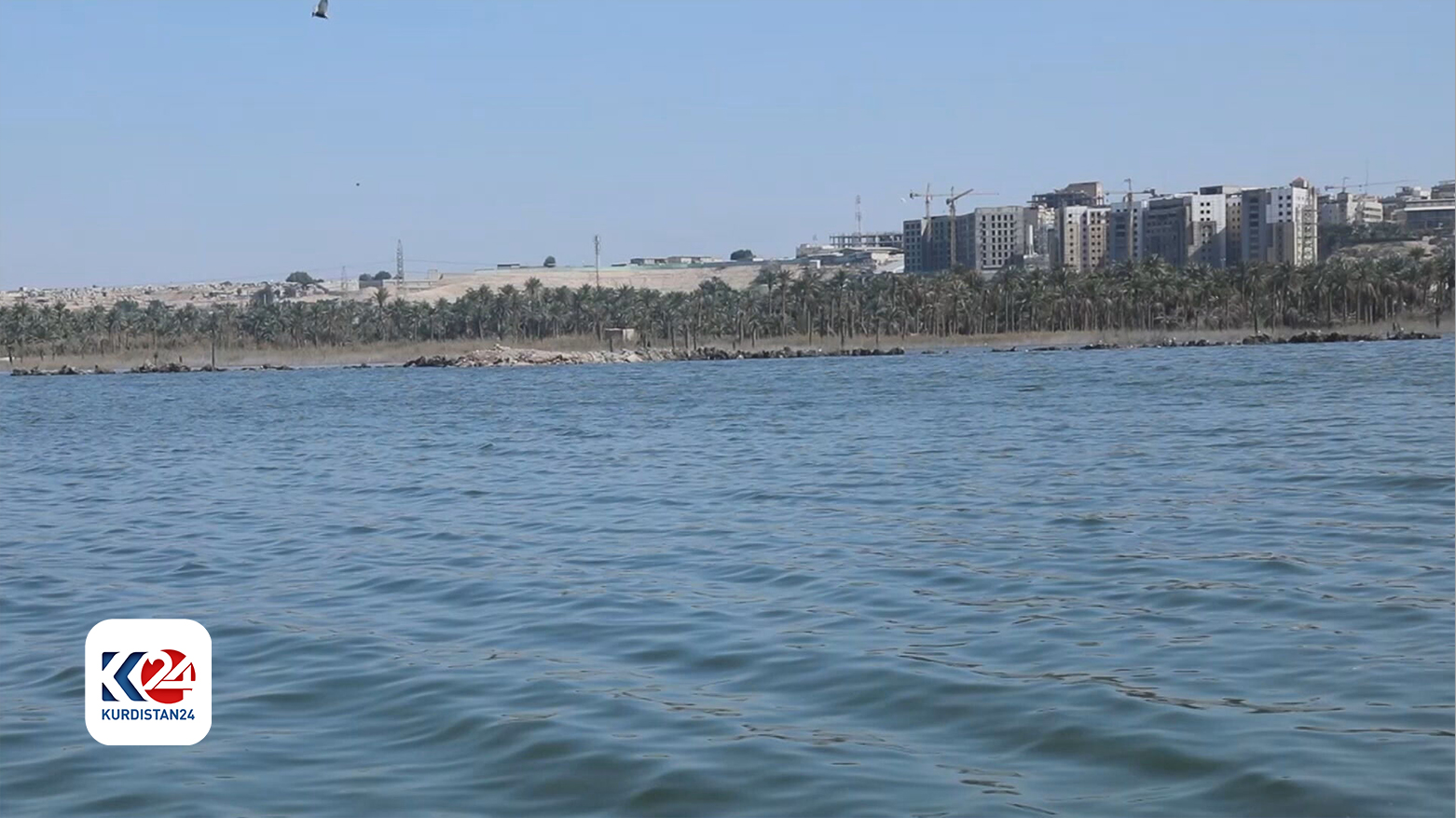Iraq's Najaf lake faces environmental crisis as water levels plummet
Once famous as most of the beautiful natural sceneries of Iraq, the lake has now reached a completely desiccated state and is being continuously deteriorated by decreasing water levels.

Nov. 30, 2024
ERBIL (Kurdistan24) - Once a symbol of natural beauty and a magnet for thousands of tourists a year, Najaf Lake is now suffering from an acute environmental crisis due to climate changes and reduced water flow.
According to environmental experts, the low water level in Lake Najaf has already led to direct effects on agricultural yields and fish resources in the province.
Once famous as most of the beautiful natural sceneries of Iraq, the lake has now reached a completely desiccated state and is being continuously deteriorated by decreasing water levels.
"Najaf Lake is one of our beautiful water bodies, but recently we've observed a dramatic decline in water levels," Jamal Abdul Zaid Shalaka, Director of Najaf's Environmental Department, told Kurdistan24. "After discussions with the relevant authorities, we came to several causes behind the reduction of the lake's waters, mainly the decreased level of water flow from the Euphrates River tributaries."
This is not only an agricultural crisis, but it has extensive economic implications for the region regarding agricultural yield and fish stocks. These factors put the livelihood of the locals at risk, especially the farmers and fishermen.
Shaker Fayez Kadhim, Najaf's water resources manager, said, "Scarcity of water coupled with climate change over the past four years has affected the local population very badly. The reduced rainfall, evaporation, and less release of water to Najaf Lake resulted in a decrease in the level of water, which directly affected the agricultural income of the region."
According to climate experts, the two major contributors to the deterioration of the lake are a reduction in the water resource and reduced flow of rivers into Iraq. What started as an environmental crisis has now grown into an economic and social one that is in urgent need of attention by the authorities.
Historically, Najaf Lake was one of the most important water resources in central Iraq, serving agriculture, fishing communities, and tourism. Its deterioration reflects a broader pattern of water scarcity challenges facing Iraq, driven by upstream damming, climate change, and reduced rainfall.
This natural resource is important not only in preserving Iraq's natural heritage but also for the sustainable future of the Iraqi community, especially those whose livelihoods depend directly on the lake's ecosystem.